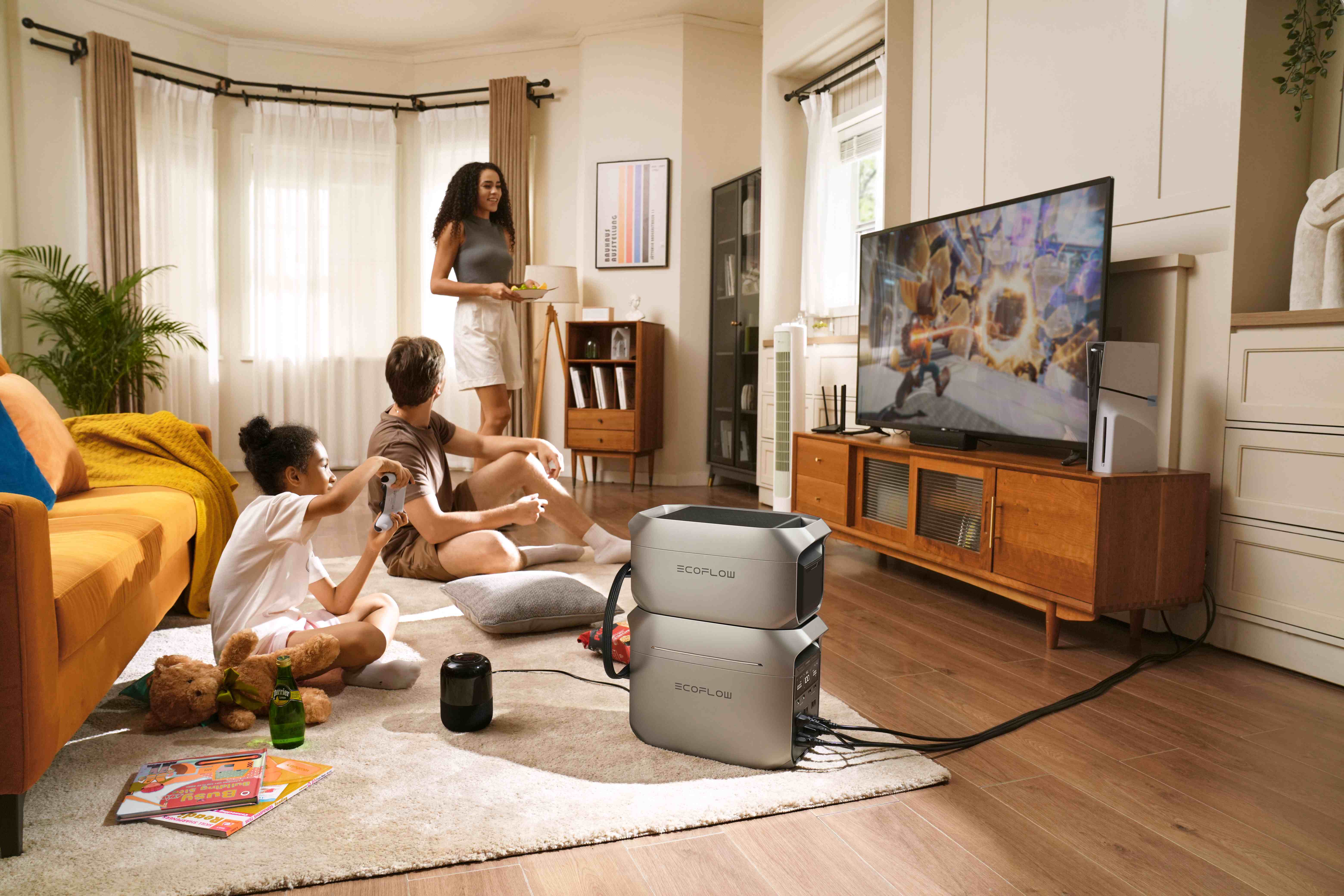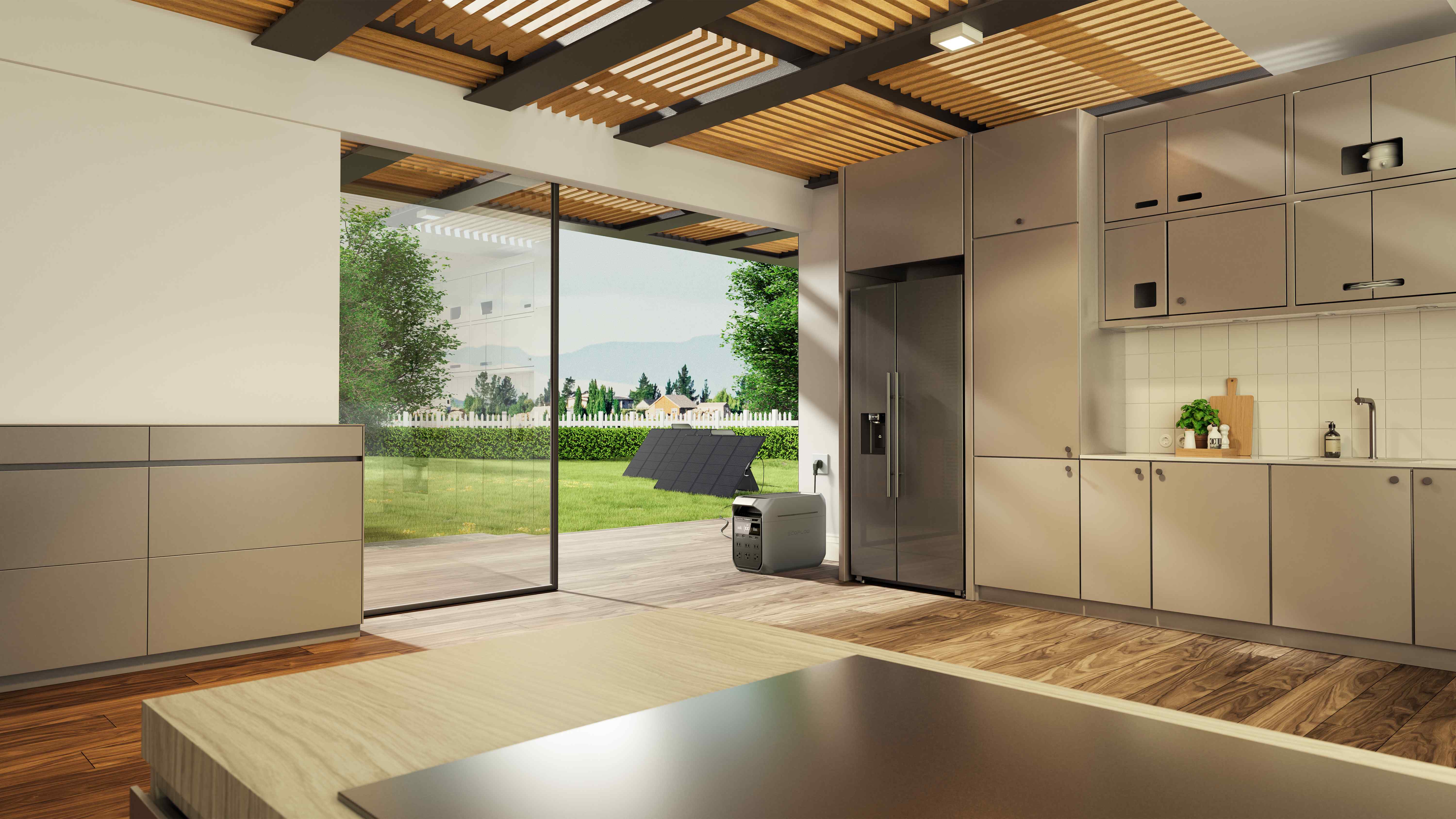Average Cost to Heat A Home with Natural Gas vs Solar Battery
- The Unpredictable Cost of Comfort
- Why's My Gas Bill So High
- The Solar Solution: A New Era of Heating
- Natural Gas vs Solar Energy Cost Analysis
- Why a Solar Storage Battery is Non-Negotiable for Heating
- Finding the Most Efficient Way to Heat a Home
- More Than Just Money: The Feel-Good Stuff
- Your Home's Heating Future
Thinking about heating costs is a natural reaction to the changing seasons. The volatility of natural gas prices makes relying on it seem risky. Solar panels can collect pure solar energy and store it in a solar battery, so you can use it to heat your home whenever you need it. This is an exciting new alternative.
The Unpredictable Cost of Comfort
Natural gas has traditionally been an affordable heating fuel, but its price has become volatile. This instability can lead to unexpectedly high and unpredictable winter bills, making budgeting difficult. Consequently, many consumers are seeking more reliable and financially stable heating alternatives.
Why's My Gas Bill So High
Before we can understand the similarity, we need to set a baseline. How much does it really cost to use natural gas to heat a house? The answer changes a lot based on a few important things.
Factors Influencing Your Gas Bill
You can't just guess your own bill by looking at your neighbor's. You have to use a special formula to figure out how much it will cost.
Where You Live: Your geography greatly affects your monthly energy bill. This is weather, right? Everyone has complete power. In the Northeast, your heater will be your best friend in winter. Your furnace may be lounging by the pool while you swim in the Atlantic. Locals earn nearly $1,115 annually. Additionally, an unexpected incident occurred! Several other factors are also important. In each state, the price of gasoline is significantly different from one another. If you are a distant relative who lives in another state, you can be in for a much larger charge than you normally would be. One of the questions that can make the state's financial problems even worse is, "How far did we have to truck this gas?" Based on this information, it can be deduced that by the year 2025, the Pacific region would have a total of $1,156 available to its citizens, whilst the East North Central region would only have $730.
Home Size and Age: To heat a 1,500 square foot cabin requires less energy than a 2,500 square foot house, which makes sense. The heating bill will rise in older homes due to constant furnace running due to heat loss caused by inadequate insulation, drafty windows, and inefficient construction.
Furnace Efficiency: The efficiency of the furnace will be rated on AFUE, or Annual Fuel Utilization Efficiency. A furnace from another decade may be only 70 percent efficient, meaning that 30 percent of the fuel energy is wasted. Today, efficient furnaces are able to reach AFUE levels of 98 percent, wasting no fuel. A typical house can save money each winter by investing in the newer furnace, which will save hundreds of dollars due to the efficiency difference between the 98 percent AFUE furnace, which will cost $2,233 to $2,335 per annum, compared to the 70 percent AFUE furnace, which will cost from $3,045 to $3.


Total Heating Cost per Year
There are clear price points based on the data, even with the same-size unit, which is only 80% efficient compared with the old one, but the annual heating bills can be drastically different.
Under 1,500 sq. ft.: $1,319 – $2,335
1,500 – 2,500 sq. ft.: $2,233 – $3,045
Over 2,500 sq. ft.: $2,842 – $3,553+
What these figures highlight is the large annual cost that is going to definitely recur each year, with the tendency to grow even higher with time.
The Solar Solution: A New Era of Heating
The primary challenge is that heating is needed most at night or on cloudy winter days—times when solar panels are not producing electricity. This is why a solar battery is necessary. The battery system stores the excess electricity your panels generate on sunny days, allowing you to use that stored power to heat your home whenever it's needed, even when the sun isn't shining.
Natural Gas vs Solar Energy Cost Analysis
When you compare the cost of gas versus the cost of solar, you've got the "pay me now or pay me later" dilemma on your hands. Do you prefer to pay the price all at once right off the bat, or would you be interested in taking out that never-ending loan from the gas company?
Upfront Investment: A Tale of Two Systems
Well, if you are going the gas way, you'll need to shell out between $4,000 to $8,000 to get one of those fancy, highly efficient (95% or higher) furnaces. This is for the furnace, installation, and everything—you can’t go wrong with the price!
A solar panel system integrated with the solar battery is a much bigger investment upfront. A system integrated with the solar battery, which is powerful enough to support the entire house, including the furnace, will cost between $20,000 to $40,000 or even more, inclusive of possible tax benefits. The biggest disincentive is, of course, the initial or front-end cost burden on the homeowner. But again, not an apple-to-apple comparison is being made here. The furnace is just an appliance, but the solar system is actually the whole power plant for your house.


Long-Term Operational Costs: The Great Divergence
This is where solar really starts to shine.
With a new gas furnace, the bills start immediately. And they... never... stop. You’re basically locked into that monthly payment for 15-20 years. That’s $1,000 - $3,500+ every year, which adds up to a whopping $20,000 - $70,000 in bills!
However, the solar part is the really cool stuff. When you install it, the bottom line is essentially, well, nothing! It just drinks all the free sunlight you can provide! Your energy bill? Well, you're about to watch it dwindle down to almost nothing, or perhaps even go away completely! All the cash you once paid to the gas company will now just pay off this incredible system you've purchased!
And the best part is, once you've paid off the system itself (this usually takes 8 to 12 years), you've won the jackpot! The system just keeps on going, creating completely free energy. Because solar panels last for 25 to 30 years, you'll be racking up an entire decade or more just from completely pure, completely free energy!
Why a Solar Storage Battery is Non-Negotiable for Heating
Honestly, the point of trying to heat with solar without a battery is like buying a ticket to watch a movie but instead going home before the best part.
Think about it: your solar panels are rockstars, but only if the sun is shining. The minute the sun goes down, the work hours are over for them. When is the coldest temperature, you ask? Exactly—when the night falls, and your solar panels are sleeping!
Without the battery, you’d only be left with the problem of having your heater suck costly energy from the power grid all night long, which defeats the whole point!
That's why the solar battery is the real MVP here. It's like having an enormous energy refrigerator for all the sunshine you're bombarded with on a daily basis. It just saves all the energy you produce throughout the day, so you've got your own stash of energy just to keep you warm all night long. That’s the secret to making the whole dream possible!
This is even more important in terms of energy independence. A winter storm will leave the energy grid down, but if you have gas, you are good—unless, of course, your gas system needs the electric grid to run the fan and controls, which is typically the case with most gas installations. A solar system installation without the battery part will go dark if the energy grid is out. However, with the solar battery installation, you are able to switch off from the energy grid but still provide energy to the required installations in the house, including the heating system. For the those who have just discovered the world of solar or those who are interested in experiencing the world of solar before committing fully to installations, the DELTA 3 Plus Portable Power Station is the product you need to start with because you will only be buying the necessary components.
Finding the Most Efficient Way to Heat a Home
Which inevitably leads to the big question: "Okay, so what's the most efficient way to stay warm?"
When it comes to fuel conversion efficiency, a 98% AFUE natural gas burning furnace is extremely efficient. The furnace burns fuel with very little waste. However, efficiency is much more complex than just fuel conversion efficiency.
A wider perspective on efficiency is the entire life cycle, or cost, of energy. Looking at the financial investment side, having solar panels, a solar battery, and an efficient electric heat pump is always the most efficient solution. Heat pumps work by redistributing heat rather than creating heat from fuel. They draw heat from outside, even from cold air, to transfer the heat inside during the winters. They consume only one unit of electric energy to produce three or four units of heat energy.
When you use this highly efficient electric device with the free available energy from your solar panels, you are creating the best possible cheap and long-lasting way to heat your home.
More Than Just Money: The Feel-Good Stuff
But this isn't just about the cash, right? Going solar is like getting your own superpower: energy independence.
Think about it. No more jumping every time the utility company decides to raise its rates. No more worrying about fuel shortages or other weird global drama messing with your bill. You're basically your own energy boss. That's a huge peace-of-mind upgrade, making your budget way more predictable.
And then there's the planet part, which just feels great. Natural gas is, you know... a fossil fuel, and it makes a mess (hi, carbon emissions). Solar is just pure, clean sunshine. By switching, you get to shrink your carbon footprint in a massive way. You're helping the planet and taking care of your own future all at once. That's a total win-win!
Your Home's Heating Future
You can stick with the conventional gas furnace if you want to, but let me tell you, definitely the cheaper ticket to get in the door, which is just great! You pay for the rest of your life, just for the privilege of receiving “surprise” bills with no end in sight!
Or, you can go all-in with solar batteries. Yep, that is one big-number, gulp-worthy investment on the front end. But the rewards? Decades of your own personal, completely free, super reliable energy. You pay it off, then you just. chill. You've officially unsubscribed from the world's crazy price hike show. The classic “pay now” plan, or the “pay forever” plan!